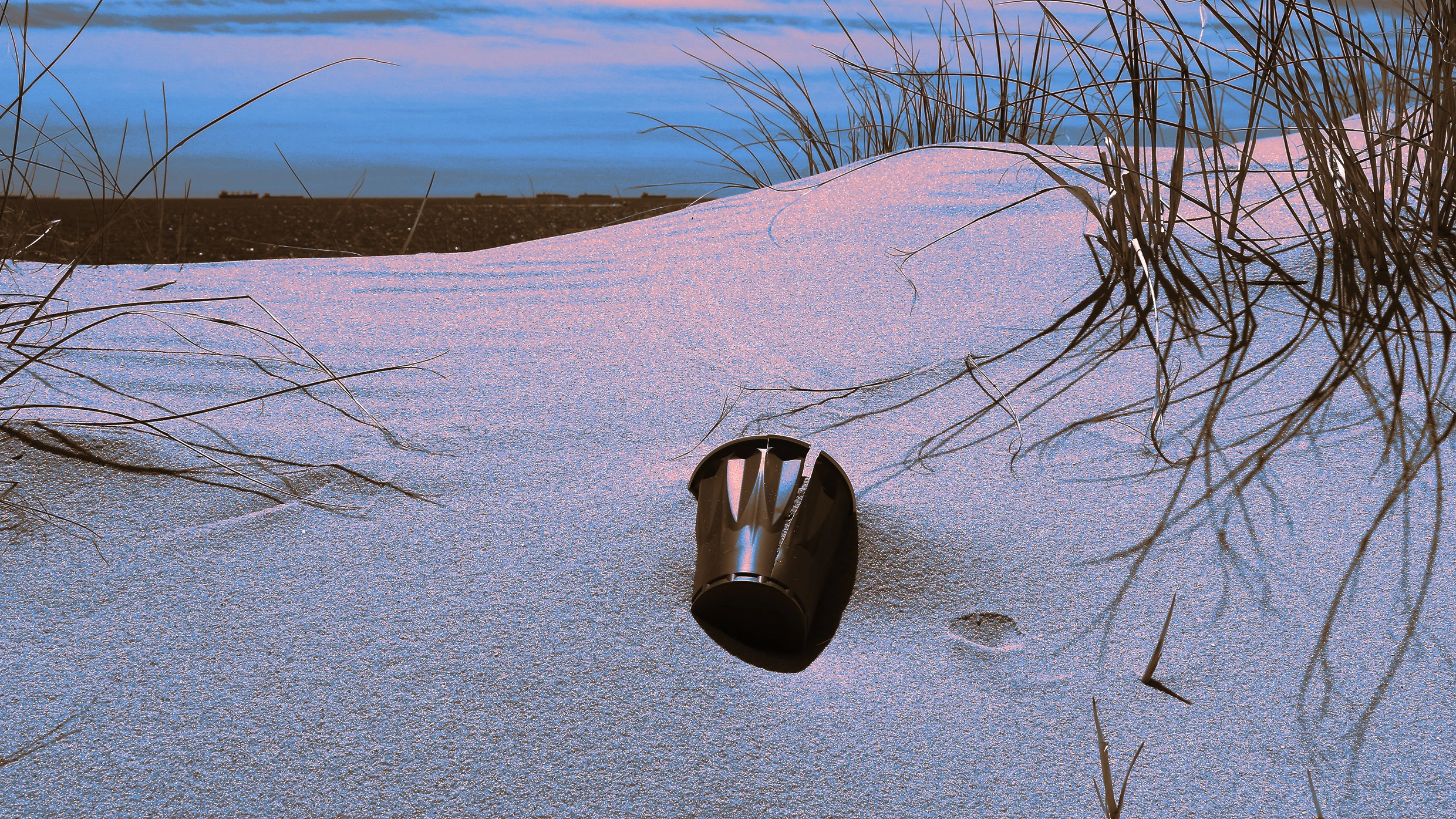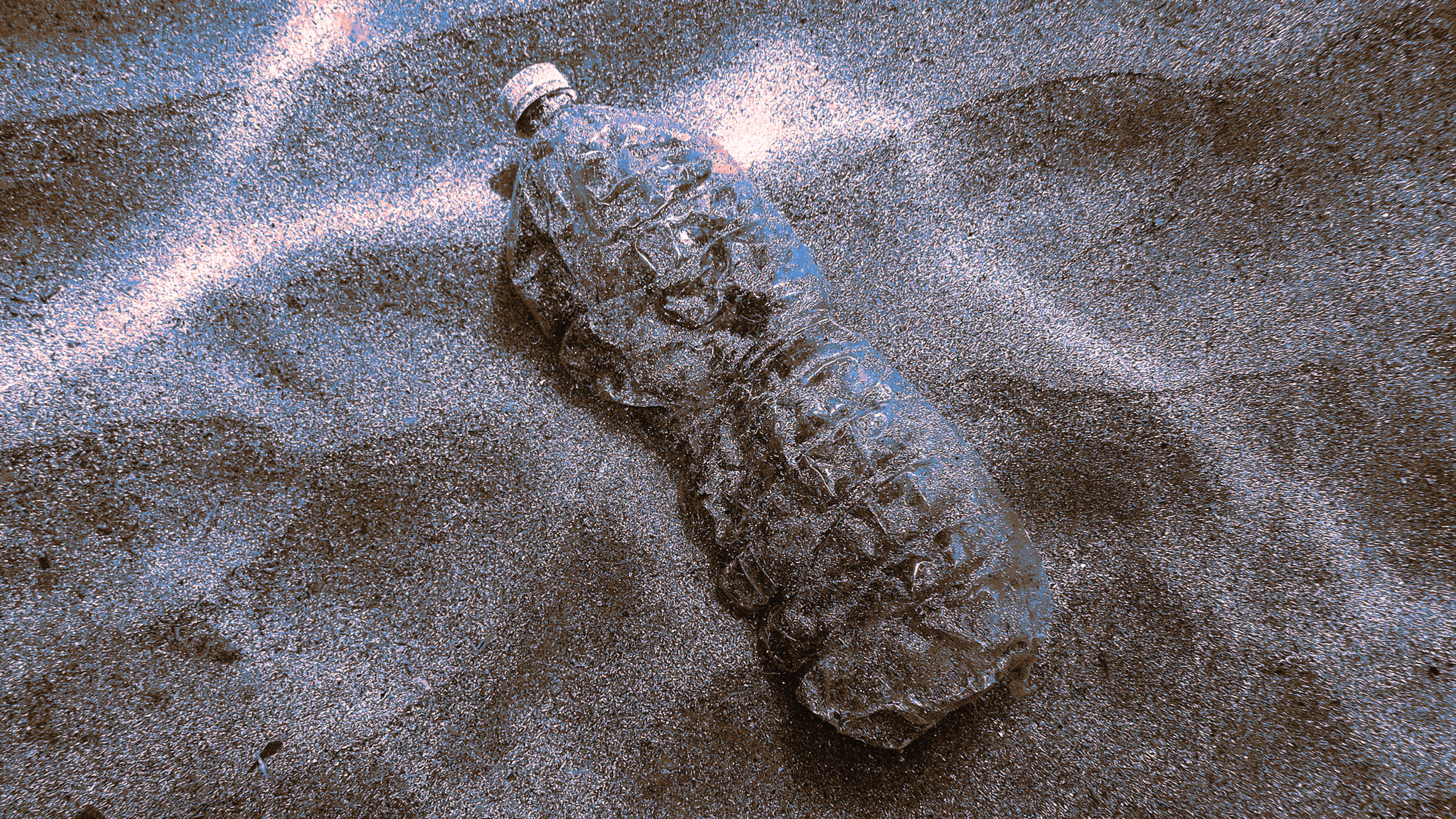Though the first fully synthetic plastic, Bakelite, was invented in the early 1900s, people didn’t start widely using the material until around World War II. During the war, plastics were used in the manufacturing of everything from parachutes to aircraft windows. The material quickly caught on in the mainstream market after the war was over, entering U.S. homes in the form of Tupperware, Saran wrap, Formica countertops, and plastic toys.
And now humankind’s love of plastic is embedded in the fossil record, marking for the rest of time the moment plastic became ubiquitous
A new paper from the Scripps Institution of Oceanography at the University of California San Diego shows that since World War II ended, plastic fragments have been building up in sediments in the Santa Barbara Basin. The study’s authors looked at about 200 years’ worth of sediments in the area, finding that microscopic plastic deposits have been doubling close to every 15 years starting in the 1940s.

The Scripps study discovered this timeline reflected in the ocean floor. In the Santa Barbara Basin, sedimentary layers are especially well preserved due to a lack of oxygen and fairly still waters, meaning materials don’t get swept away with the tides and there are no animals around to disturb the sediment. The Scripps research team, led by microplastics biologist Jennifer Brandon, was able to look at sediments dating back to 1834. Plastic fibers, mostly from clothing, were prevalent in sediment starting from around 1945.
From then on, plastic levels in the basin sediment increased dramatically. Deposits went up by 10 times the amount over pre-World War II levels. Not only did the amount of plastics increase, but so did the variety. In addition to clothing fibers, Scripps researchers found pieces from materials like Ziploc bags and the microbeads you can find in cosmetics and hand soaps. Some of these microfibers are “as thin as human hairs,” says Brandon, and can only be seen under a microscope.
Microplastics are present throughout the ocean. A June 2019 study from Scripps found microplastics as deep as 3,300 feet off the shore of Monterey, California, and a deep-sea diver found plastic trash 35,853 feet, or 6.8 miles, into the ocean earlier this year. Descending deeper than any other human—to the Mariana Trench in the Pacific Ocean—retired navy officer Victor Vescovo found arthropods swimming next to plastic and metal garbage.
Brandon says that her team’s research shows how people can use plastic buildup as a way to denote the Anthropocene, a geological time period that is said to have begun when human activity started significantly affecting the earth’s climate and ecosystems. “Plastic doesn’t really degrade,” says Brandon. “It breaks down into smaller pieces . . . so plastic can be a good fossil marker because it’s going to last for hundreds and hundreds of years.”
Recognize your brand’s excellence by applying to this year’s Brands That Matter Awards before the final deadline, June 7.
Sign up for Brands That Matter notifications here.
